2024 West Tennessee Regional Event
 Tuesday, April 9th, we had the opportunity to host our regional event at Paris Landing State Park and see our west region members. Members had the opportunity to hear from professionals on topics including MAT in Corrections, current drug trends, social drivers of health, and more.
Tuesday, April 9th, we had the opportunity to host our regional event at Paris Landing State Park and see our west region members. Members had the opportunity to hear from professionals on topics including MAT in Corrections, current drug trends, social drivers of health, and more.
The presentation can be found below:
- Naloxone Training Melesa Lassiter & Jennifer Watkins, ROPS In this presentation we learn from the West Regional Overdose Prevention Specialist about administering naloxone and further prevention efforts. Find the full presentation here.
- MAT in Corrections Kristen Zak, TDH In this presentation we talk with Kristen Zak about the MAT in corrections pilot program she has been managing in East TN the last two years. Find the full presentation here.
- Addressing Social Drivers of Health findhelp In this presentation we discuss why addressing social drivers of health and why understanding social determinants are essential for creating equitable health systems and fostering healthier communities overall. Find the full presentation here.
- TDH & RHA Programs and Updates In this presentation we go over current program updates with not only the Rural Health Association but the Tennessee Department of Health. Find the full presentation here.


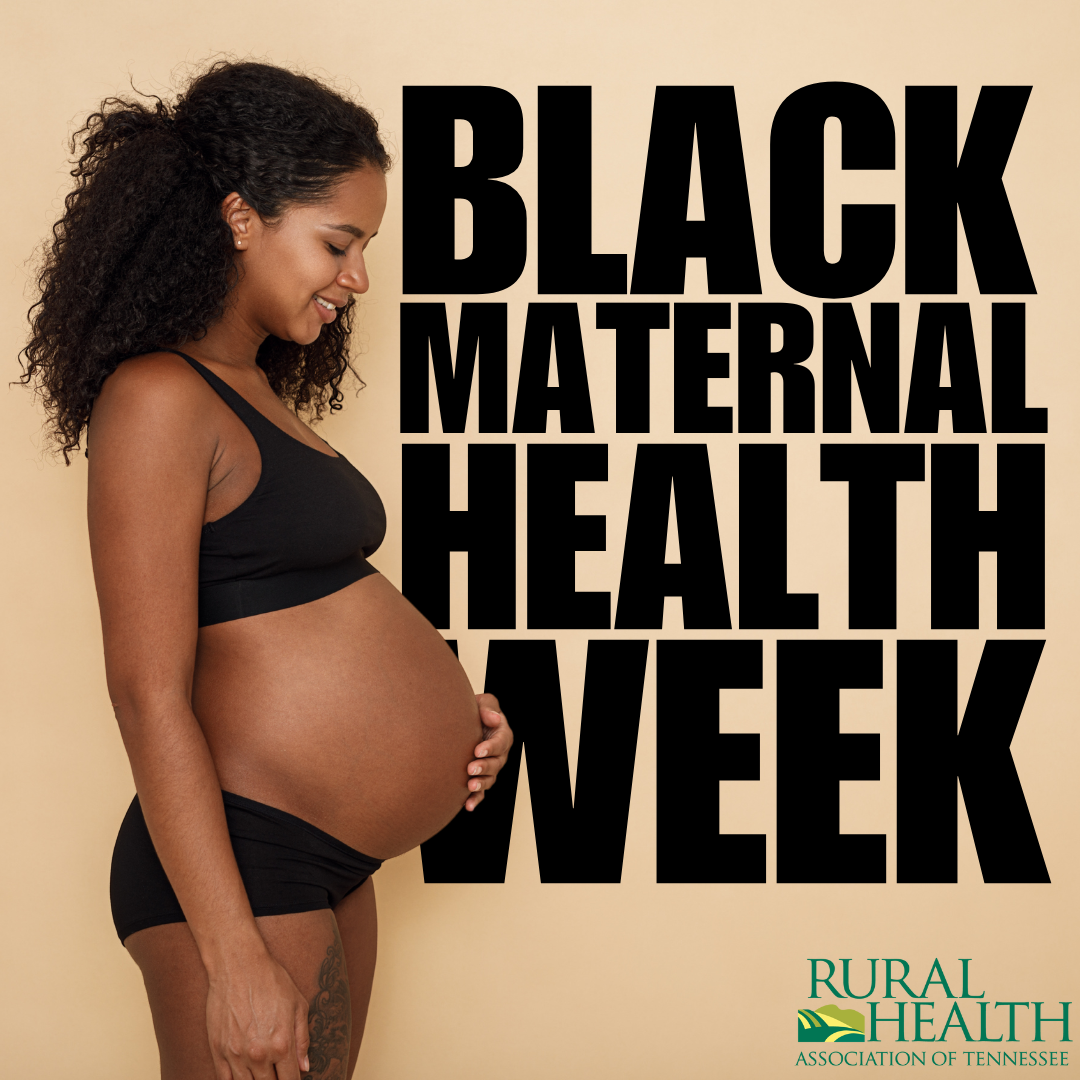 Black Maternal Health Week (BMHW) is a critical initiative aimed at addressing the significant disparities in maternal health outcomes experienced by Black women in the United States. This dedicated week takes place from April 11th-17th and raises awareness about the disproportionate rates of maternal mortality and morbidity among Black women and advocates for policies and interventions to improve Black maternal health outcomes. In rural areas, where access to quality healthcare services is often limited and disparities in healthcare delivery are exacerbated, BMHW holds particular importance in highlighting and addressing the unique challenges faced by Black mothers.
Black Maternal Health Week (BMHW) is a critical initiative aimed at addressing the significant disparities in maternal health outcomes experienced by Black women in the United States. This dedicated week takes place from April 11th-17th and raises awareness about the disproportionate rates of maternal mortality and morbidity among Black women and advocates for policies and interventions to improve Black maternal health outcomes. In rural areas, where access to quality healthcare services is often limited and disparities in healthcare delivery are exacerbated, BMHW holds particular importance in highlighting and addressing the unique challenges faced by Black mothers.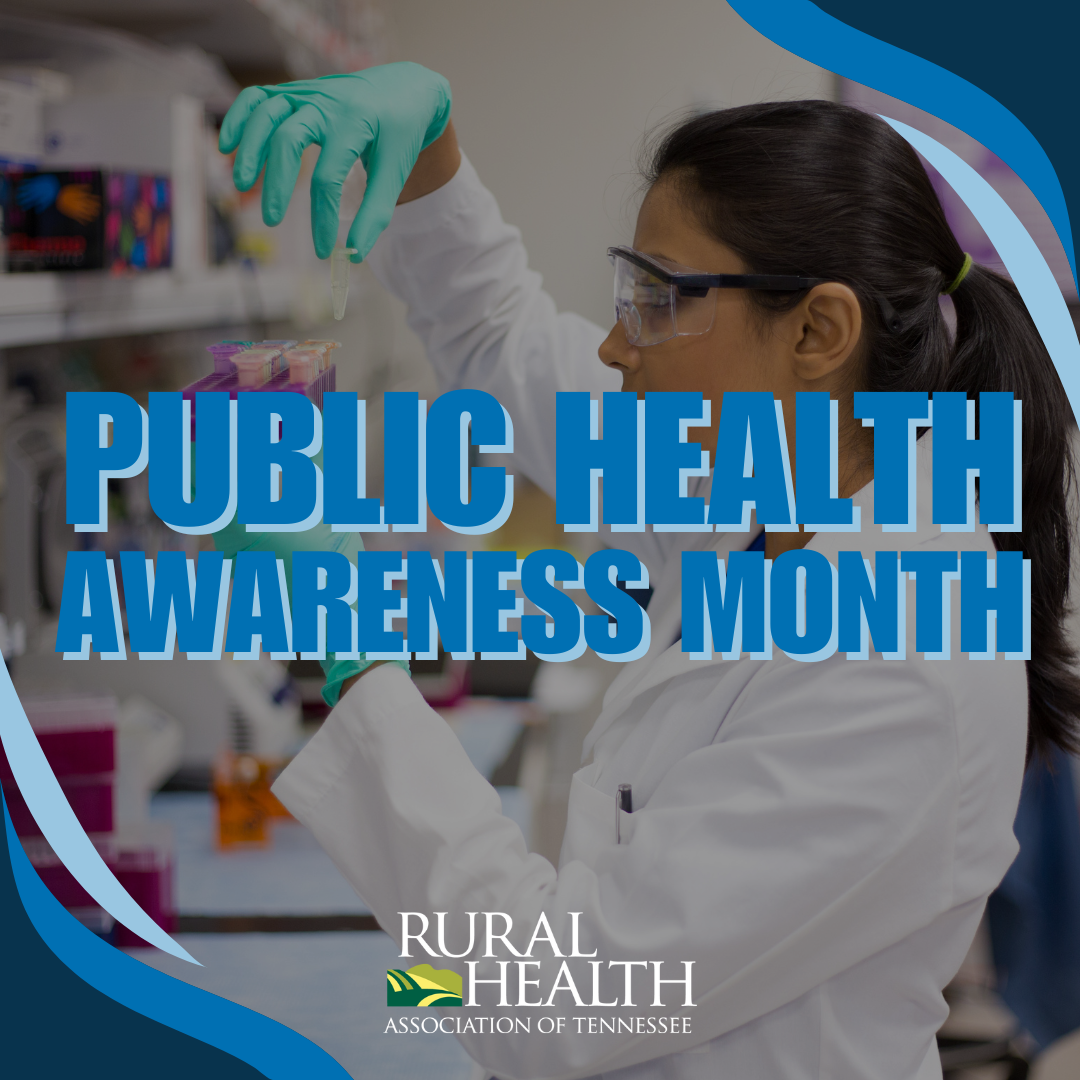 Public Health Awareness Month holds particular significance for rural areas, where access to healthcare services and health education can be limited. In rural communities, residents often face unique challenges such as geographic isolation, limited healthcare infrastructure, and socioeconomic disparities, which can contribute to poorer health outcomes. Public Health Awareness Month provides a crucial opportunity to address these disparities by raising awareness about prevalent health issues and promoting access to healthcare resources in rural areas.
Public Health Awareness Month holds particular significance for rural areas, where access to healthcare services and health education can be limited. In rural communities, residents often face unique challenges such as geographic isolation, limited healthcare infrastructure, and socioeconomic disparities, which can contribute to poorer health outcomes. Public Health Awareness Month provides a crucial opportunity to address these disparities by raising awareness about prevalent health issues and promoting access to healthcare resources in rural areas.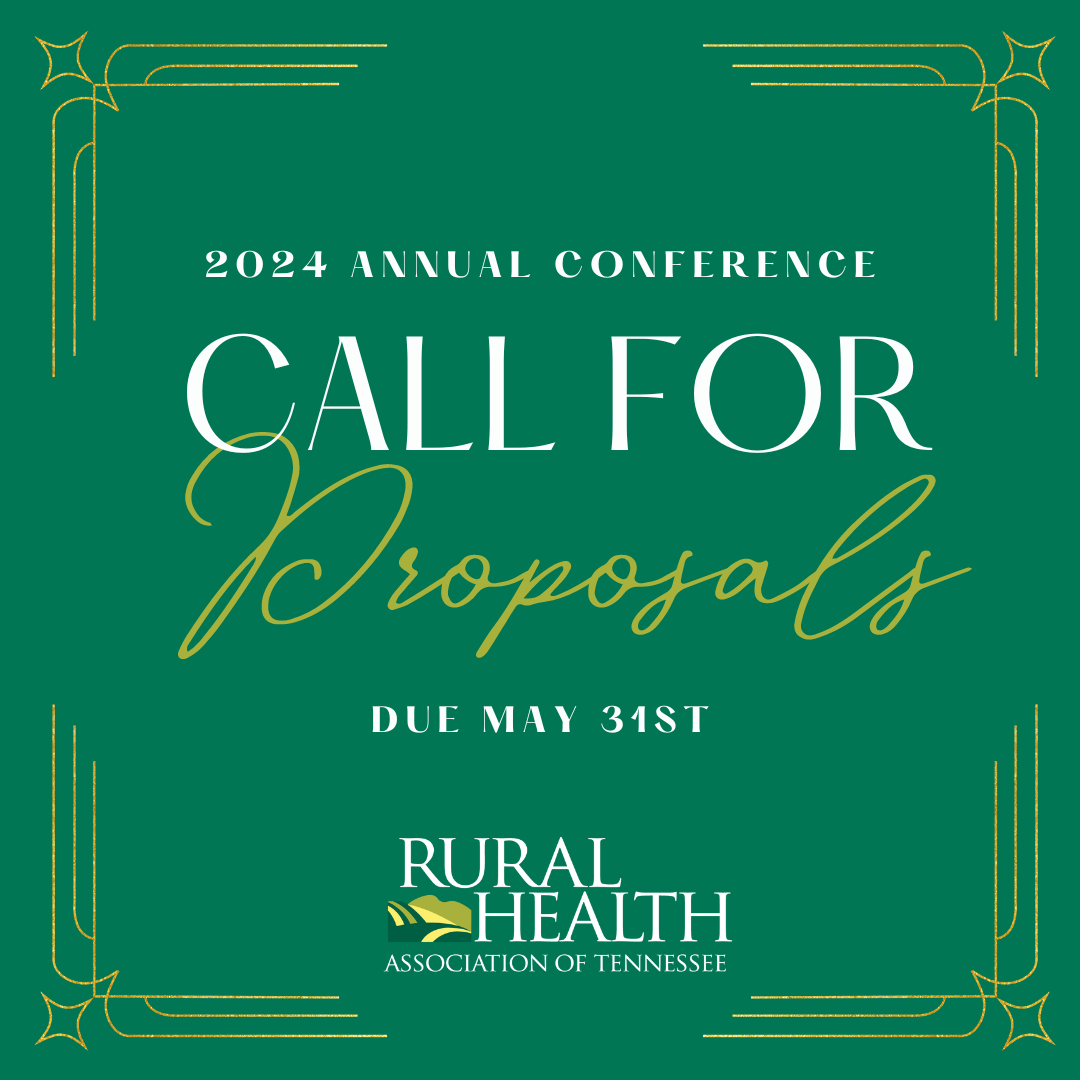 The Rural Health Association of Tennessee's
The Rural Health Association of Tennessee's 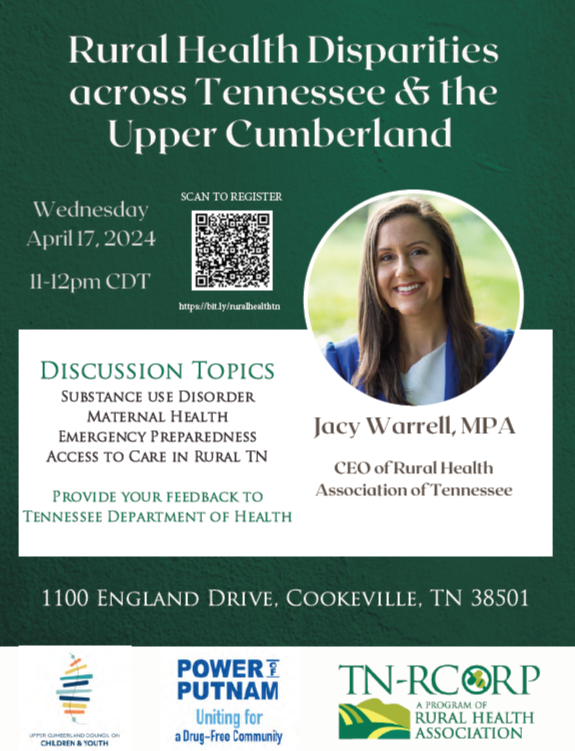 Join us on April 17 from 11AM - 12PM for an informative lunch session hosted by Upper Cumberland Council on Children and Youth, Rural Health Association of Tennessee, and Power of Putnam. Discussion topics will cover substance use disorder, maternal health, emergency preparedness, and access to care in rural TN. Don't miss out on this exciting opportunity to grow and learn together!
Join us on April 17 from 11AM - 12PM for an informative lunch session hosted by Upper Cumberland Council on Children and Youth, Rural Health Association of Tennessee, and Power of Putnam. Discussion topics will cover substance use disorder, maternal health, emergency preparedness, and access to care in rural TN. Don't miss out on this exciting opportunity to grow and learn together!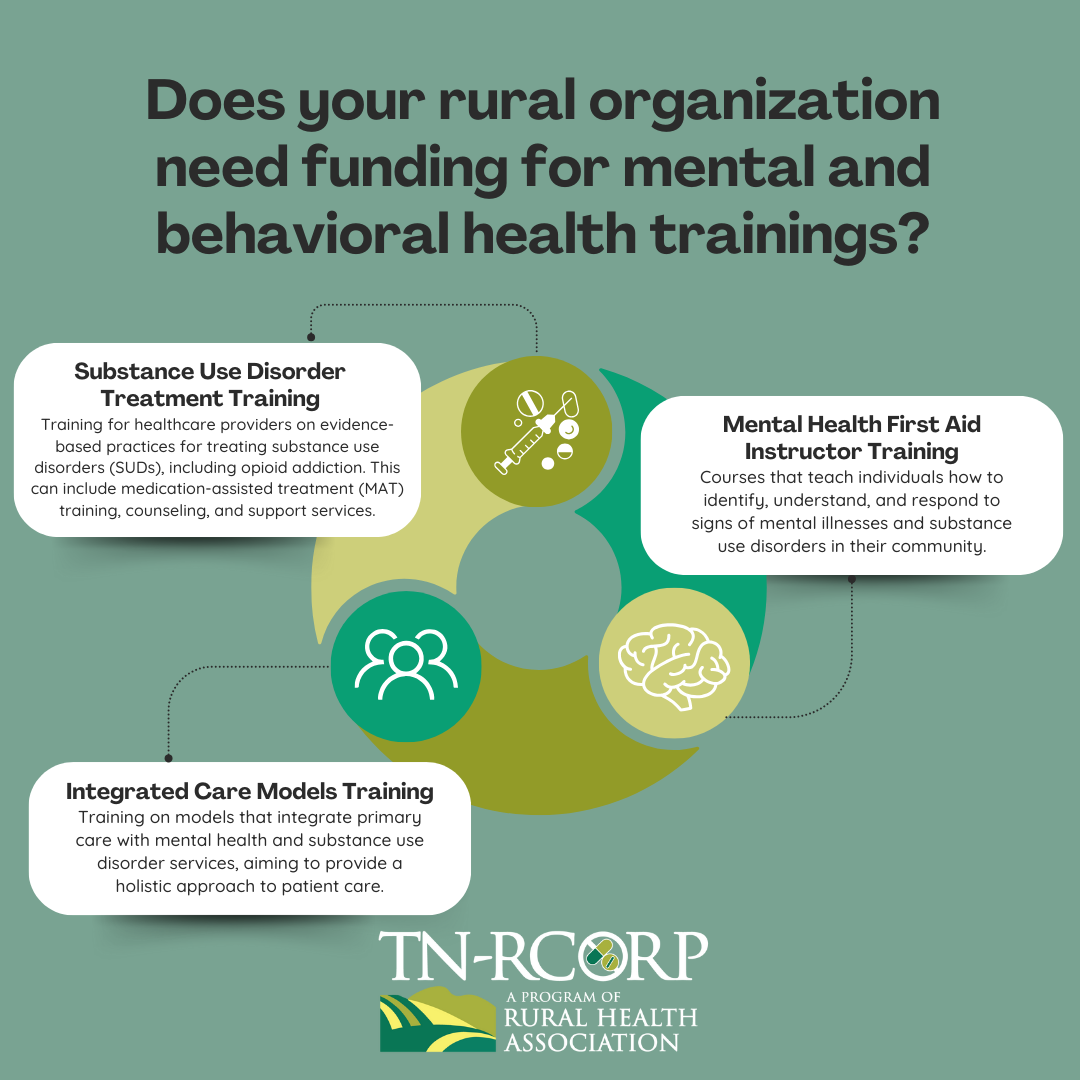 The Rural Health Association is offering funding for
The Rural Health Association is offering funding for 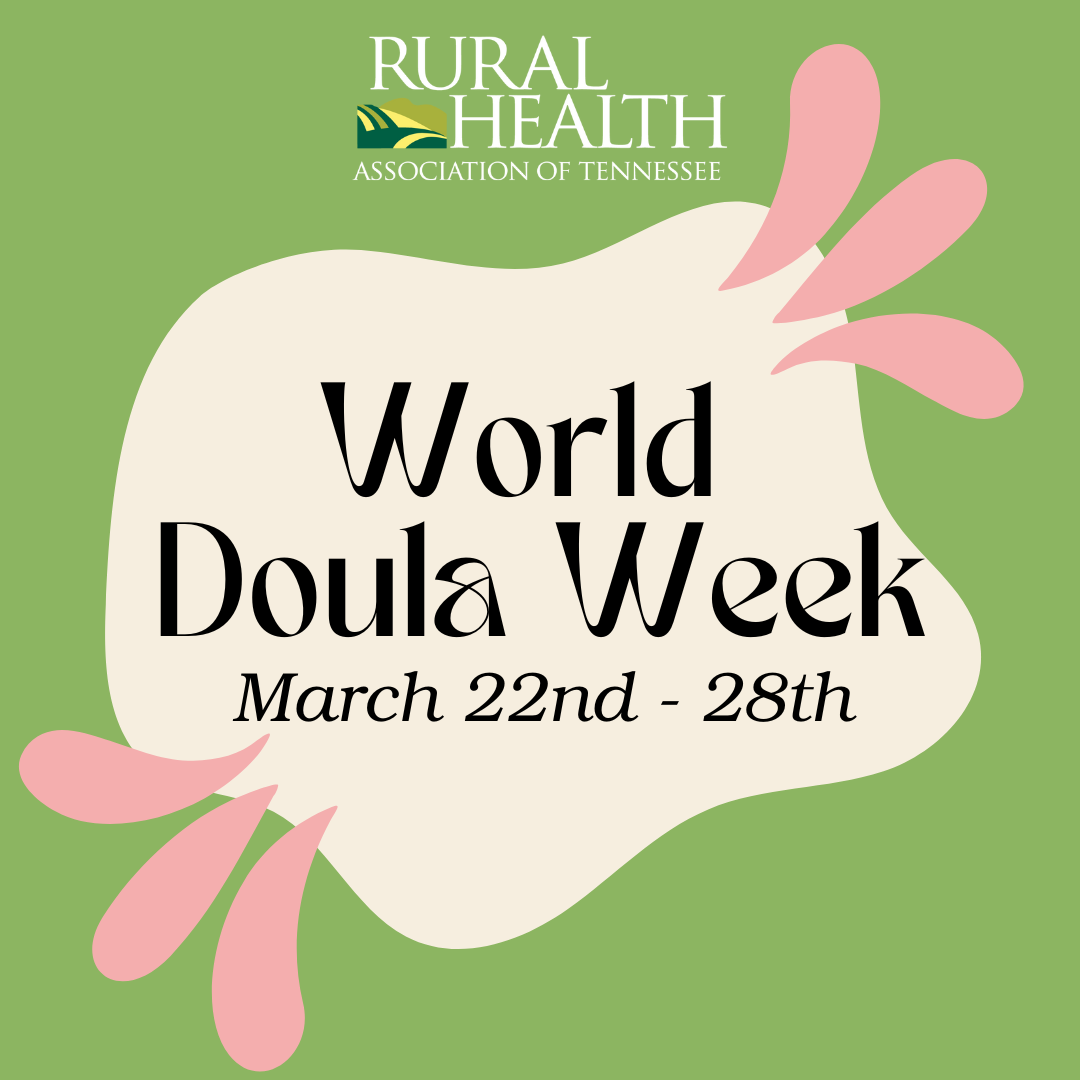 World Doula Week holds significant importance in raising awareness about the invaluable role of doulas in maternal and infant healthcare. Doulas, often referred to as birth companions or birth coaches, provide physical, emotional, and informational support to mothers before, during, and after childbirth. This week-long observance serves as a platform to highlight the vital contributions doulas make in promoting positive birth experiences, reducing medical interventions, and supporting the overall well-being of mothers and babies worldwide.
World Doula Week holds significant importance in raising awareness about the invaluable role of doulas in maternal and infant healthcare. Doulas, often referred to as birth companions or birth coaches, provide physical, emotional, and informational support to mothers before, during, and after childbirth. This week-long observance serves as a platform to highlight the vital contributions doulas make in promoting positive birth experiences, reducing medical interventions, and supporting the overall well-being of mothers and babies worldwide.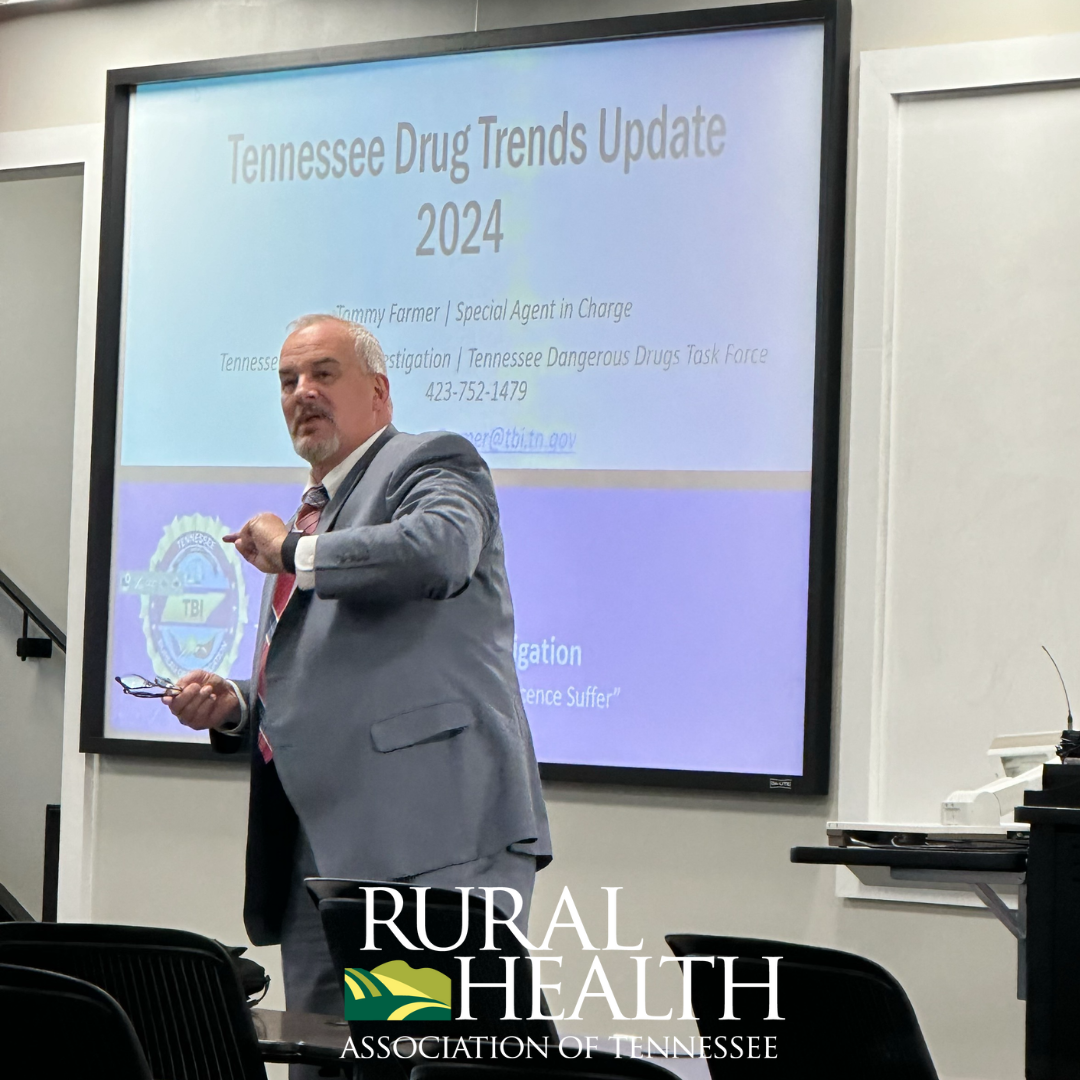 Our 2024 Spring Regional events are in swing! Tuesday, March 19th, we had the opportunity to host our regional event at East Tennessee University and see our east region members. Members had the opportunity to h
Our 2024 Spring Regional events are in swing! Tuesday, March 19th, we had the opportunity to host our regional event at East Tennessee University and see our east region members. Members had the opportunity to h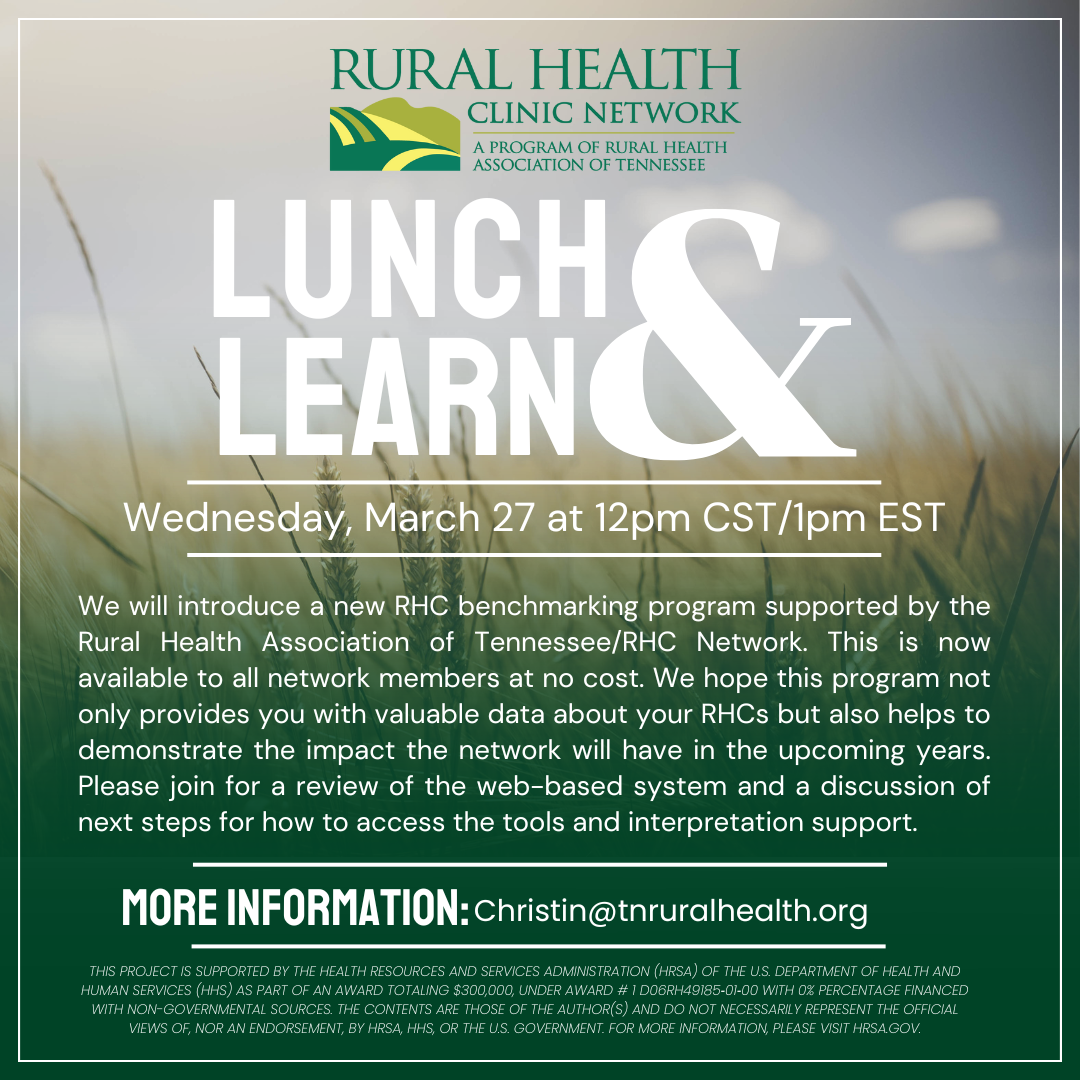 Please join us for our next Lunch and Learn Session on Wednesday, March 27 at 12pm CST/1pm EST where we will introduce a new RHC benchmarking program supported by the Rural Health Association of Tennessee/RHC Network. This is now available to all network members at no cost. We hope this program not only provides you with valuable data about your RHCs but also helps to demonstrate the impact the network will have in the upcoming years.
Please join us for our next Lunch and Learn Session on Wednesday, March 27 at 12pm CST/1pm EST where we will introduce a new RHC benchmarking program supported by the Rural Health Association of Tennessee/RHC Network. This is now available to all network members at no cost. We hope this program not only provides you with valuable data about your RHCs but also helps to demonstrate the impact the network will have in the upcoming years. 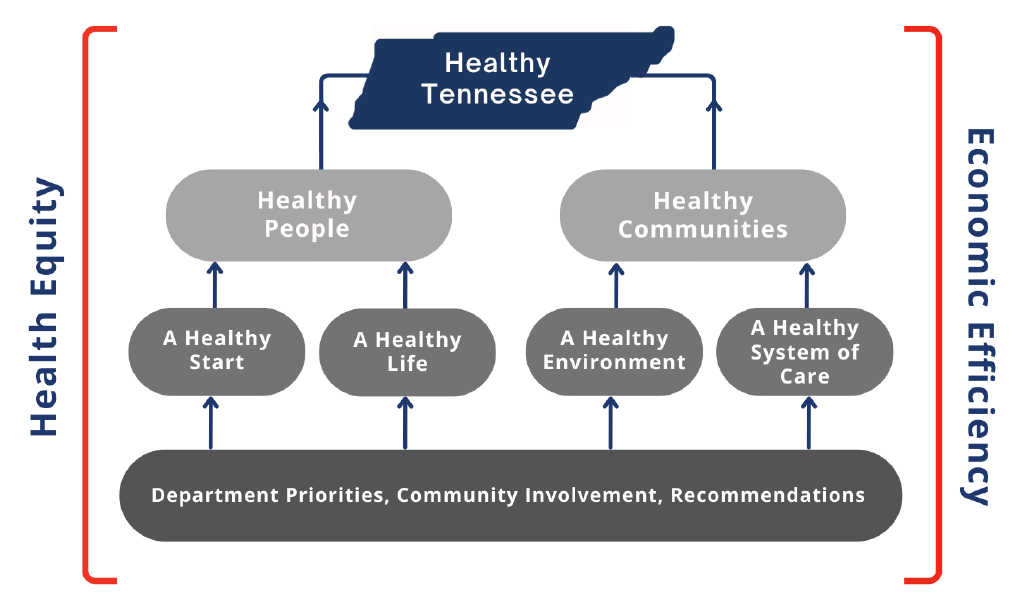 The 2024-2026 State Health Plan seeks to provide a pathway for achieving the Department’s vision: Healthy People, Healthy Communities, Healthy Tennessee.
The 2024-2026 State Health Plan seeks to provide a pathway for achieving the Department’s vision: Healthy People, Healthy Communities, Healthy Tennessee.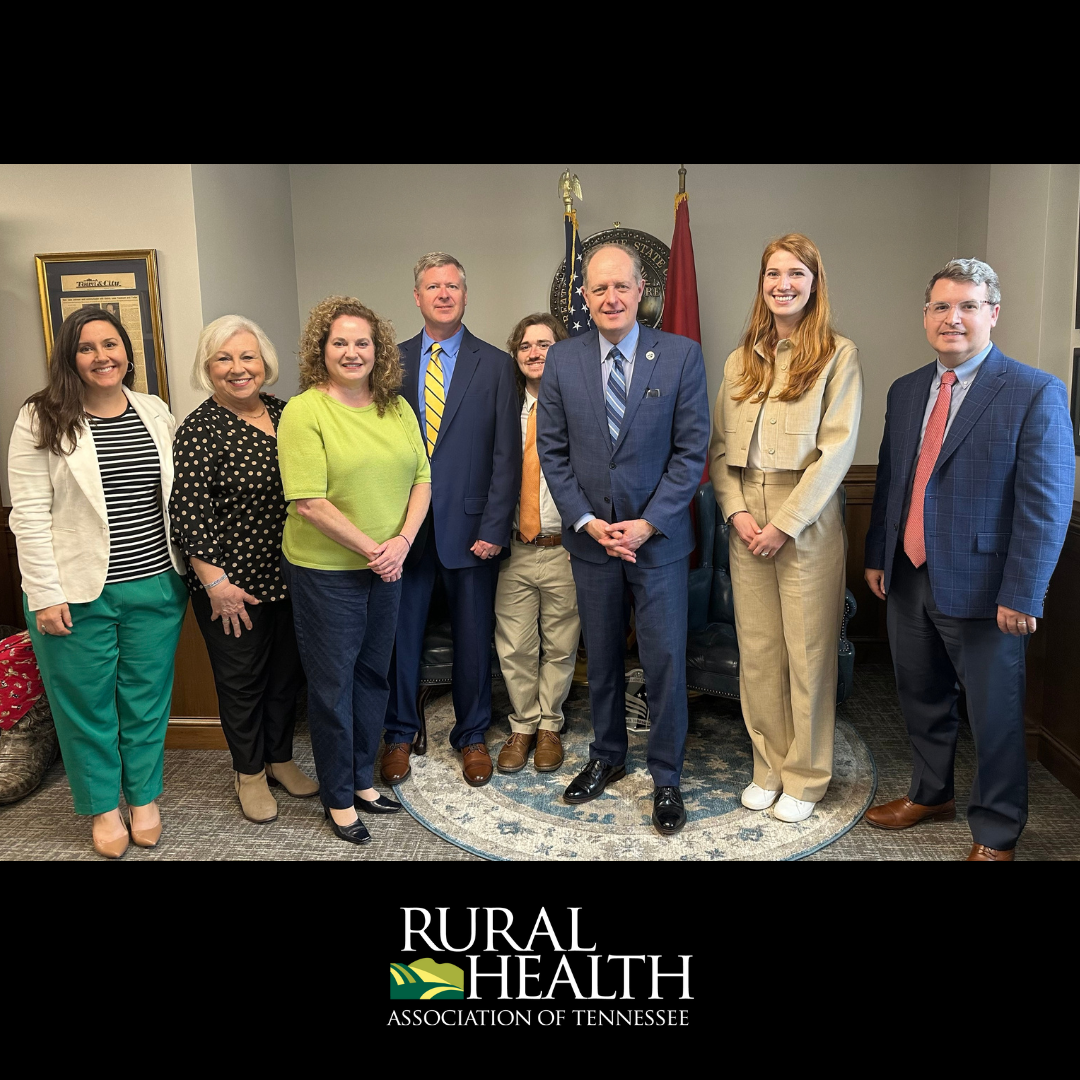 RHA members and staff traveled to Nashville for the Rural Health Association's Day on the Hill March 5th,
RHA members and staff traveled to Nashville for the Rural Health Association's Day on the Hill March 5th,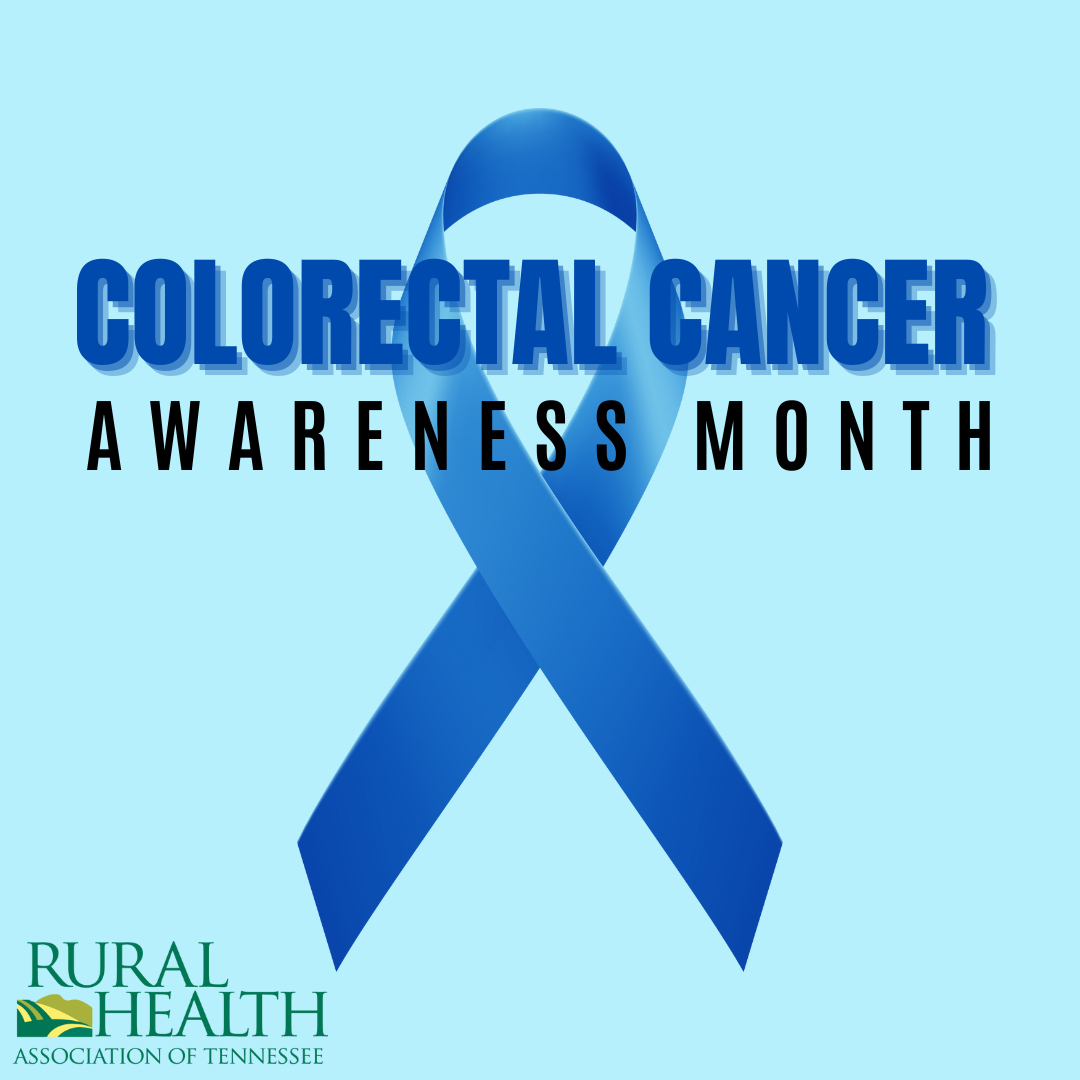 Colorectal Cancer Awareness Month, observed annually in March, serves as a crucial reminder of the importance of understanding and preventing colorectal cancer, which is one of the most common cancers worldwide. This month-long campaign aims to raise awareness about colorectal cancer risk factors, symptoms, screening options, and preventive measures. Through education and advocacy efforts, individuals are encouraged to take proactive steps to reduce their risk of developing colorectal cancer and to promote early detection through regular screenings.
Colorectal Cancer Awareness Month, observed annually in March, serves as a crucial reminder of the importance of understanding and preventing colorectal cancer, which is one of the most common cancers worldwide. This month-long campaign aims to raise awareness about colorectal cancer risk factors, symptoms, screening options, and preventive measures. Through education and advocacy efforts, individuals are encouraged to take proactive steps to reduce their risk of developing colorectal cancer and to promote early detection through regular screenings.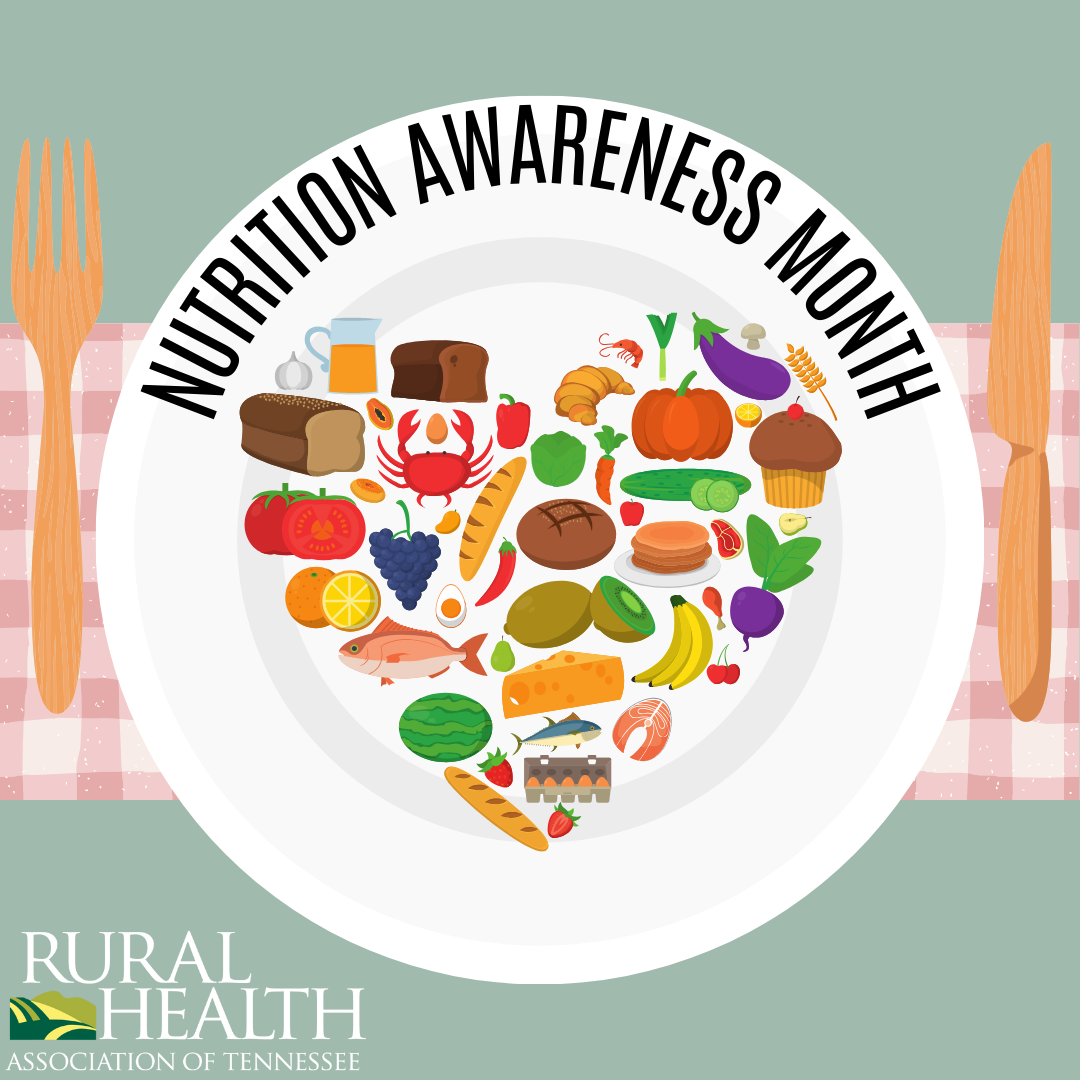 In the United States, food security remains a pressing issue, with millions of individuals and families facing challenges in accessing affordable and nutritious food. Rural areas, in particular, often bear the brunt of food insecurity due to limited access to grocery stores, fewer transportation options, and lower incomes compared to urban counterparts. These challenges are exacerbated by factors such as geographic isolation, limited employment opportunities, and reliance on agriculture, which can be susceptible to fluctuations in crop yields and market prices.
In the United States, food security remains a pressing issue, with millions of individuals and families facing challenges in accessing affordable and nutritious food. Rural areas, in particular, often bear the brunt of food insecurity due to limited access to grocery stores, fewer transportation options, and lower incomes compared to urban counterparts. These challenges are exacerbated by factors such as geographic isolation, limited employment opportunities, and reliance on agriculture, which can be susceptible to fluctuations in crop yields and market prices.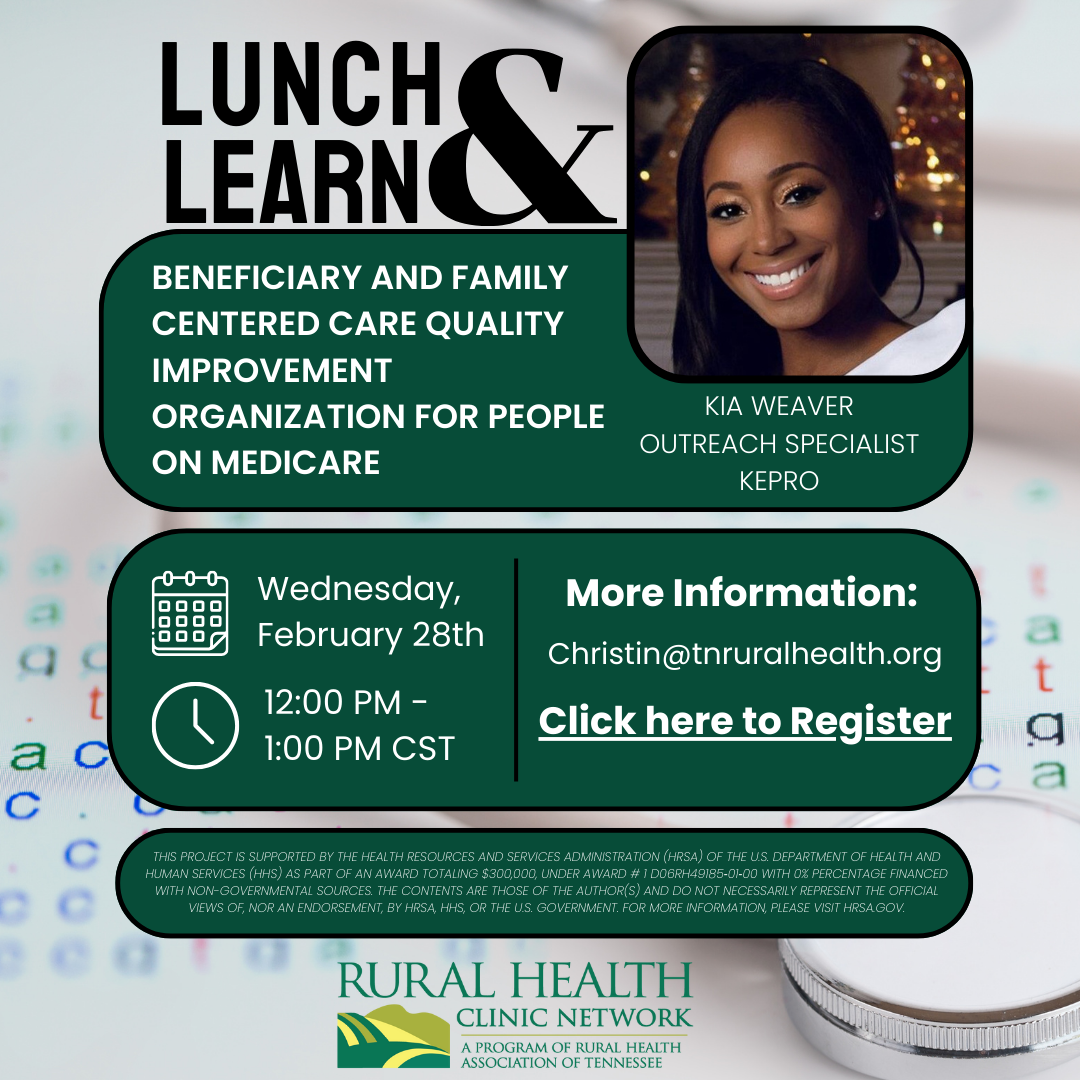 Join us February 28th, 2024 at 12:00 PM CST, for our monthly Rural Health Clinic lunch and learn webinar. This month's guest will be Kia Weaver, Outreach Specialist, with Kepro.
Join us February 28th, 2024 at 12:00 PM CST, for our monthly Rural Health Clinic lunch and learn webinar. This month's guest will be Kia Weaver, Outreach Specialist, with Kepro. 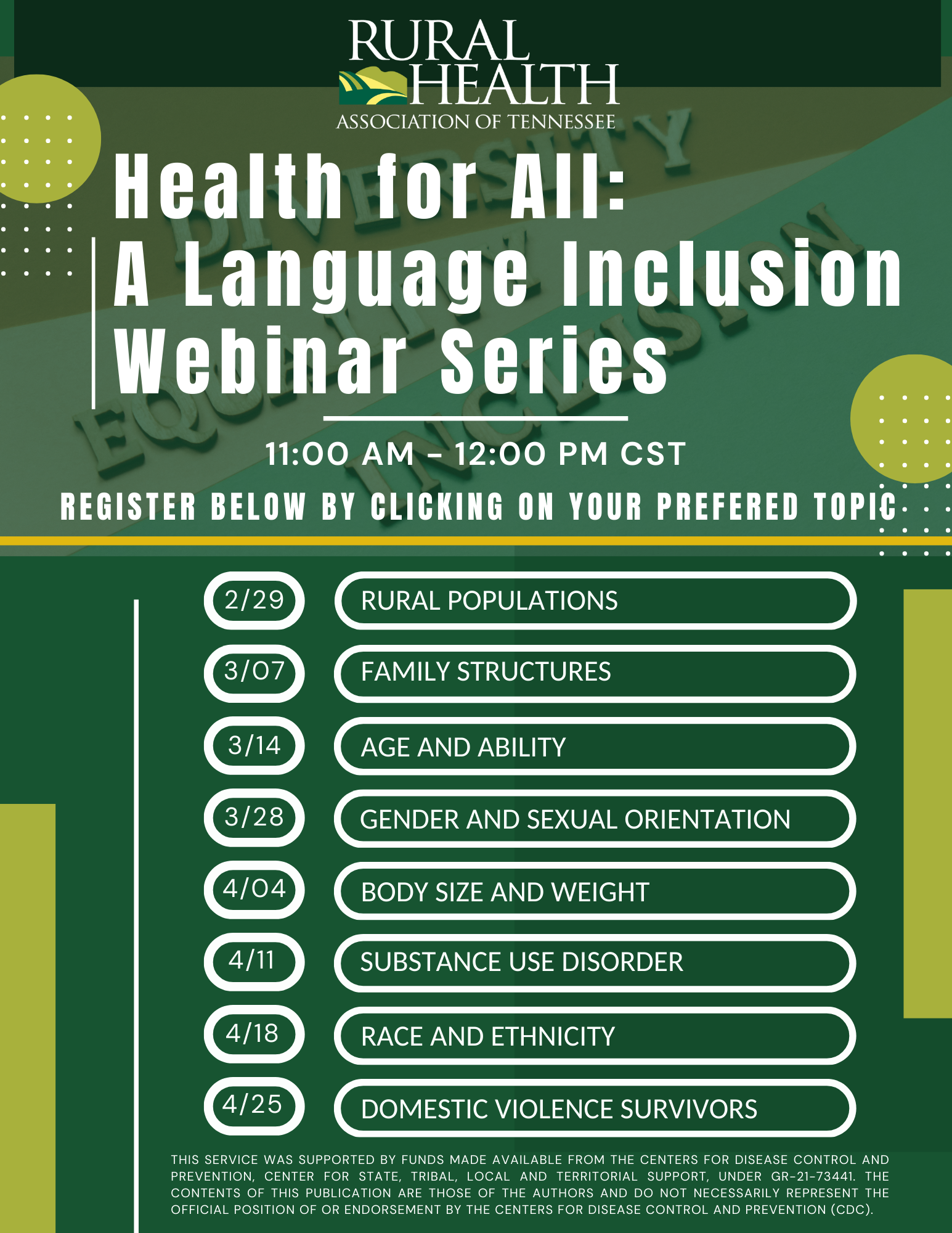 Join us for an eight-week webinar series, "Health for All: A Language Inclusion Webinar Series," to discuss varying populations within our rural communities that experience a larger gap in health disparities. This webinar series will be held weekly beginning on February 29th at 11am CST and go through April 25th.
Join us for an eight-week webinar series, "Health for All: A Language Inclusion Webinar Series," to discuss varying populations within our rural communities that experience a larger gap in health disparities. This webinar series will be held weekly beginning on February 29th at 11am CST and go through April 25th.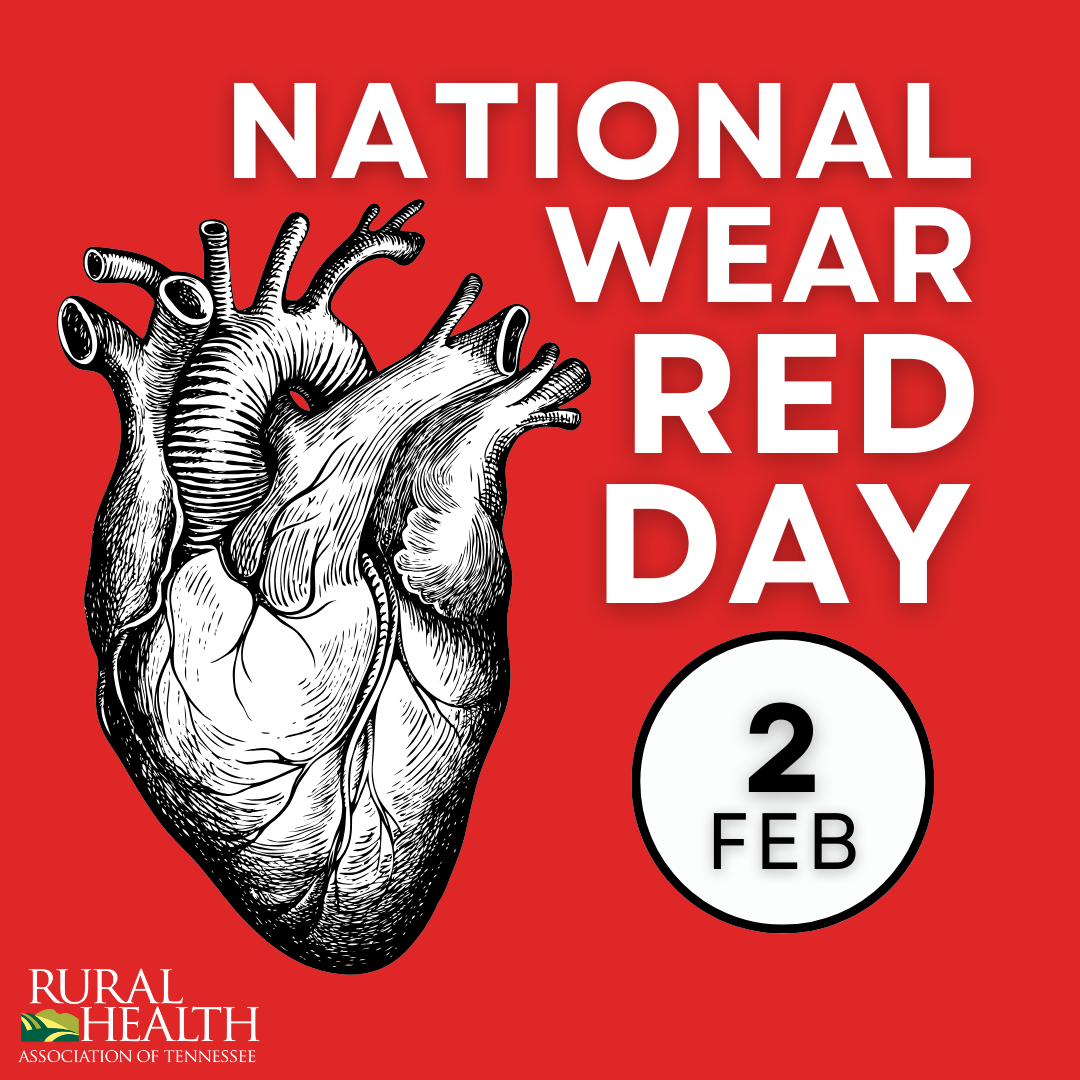 February is recognized as American Heart Month, a dedicated period to raise awareness about heart health and encourage individuals to adopt heart-healthy lifestyles. Cardiovascular diseases remain a leading cause of death globally, and American Heart Month serves as an important opportunity to educate the public about the risk factors associated with heart disease and the preventive measures that can be taken. During this month, various organizations, healthcare professionals, and communities come together to promote heart health through events, campaigns, and educational initiatives.
February is recognized as American Heart Month, a dedicated period to raise awareness about heart health and encourage individuals to adopt heart-healthy lifestyles. Cardiovascular diseases remain a leading cause of death globally, and American Heart Month serves as an important opportunity to educate the public about the risk factors associated with heart disease and the preventive measures that can be taken. During this month, various organizations, healthcare professionals, and communities come together to promote heart health through events, campaigns, and educational initiatives.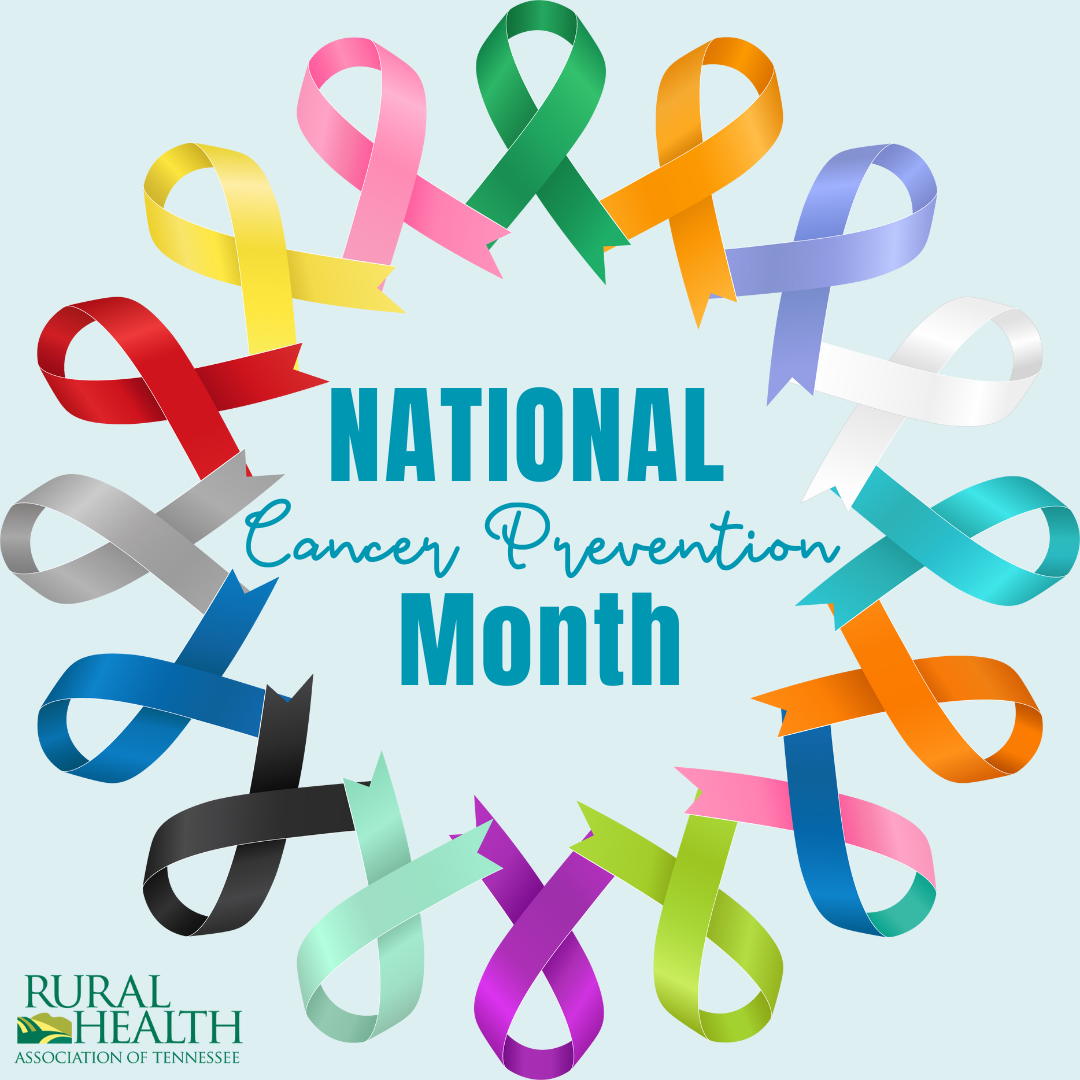 National Cancer Prevention Month, observed every February, is a crucial awareness initiative that underscores the significance of proactive measures in reducing the risk of cancer. This month serves as a platform to educate individuals about lifestyle choices, early detection, and regular screenings that can contribute to preventing various types of cancer. By promoting healthy behaviors such as maintaining a balanced diet, engaging in regular physical activity, avoiding tobacco and excessive alcohol consumption, individuals can significantly lower their risk of developing cancer.
National Cancer Prevention Month, observed every February, is a crucial awareness initiative that underscores the significance of proactive measures in reducing the risk of cancer. This month serves as a platform to educate individuals about lifestyle choices, early detection, and regular screenings that can contribute to preventing various types of cancer. By promoting healthy behaviors such as maintaining a balanced diet, engaging in regular physical activity, avoiding tobacco and excessive alcohol consumption, individuals can significantly lower their risk of developing cancer.